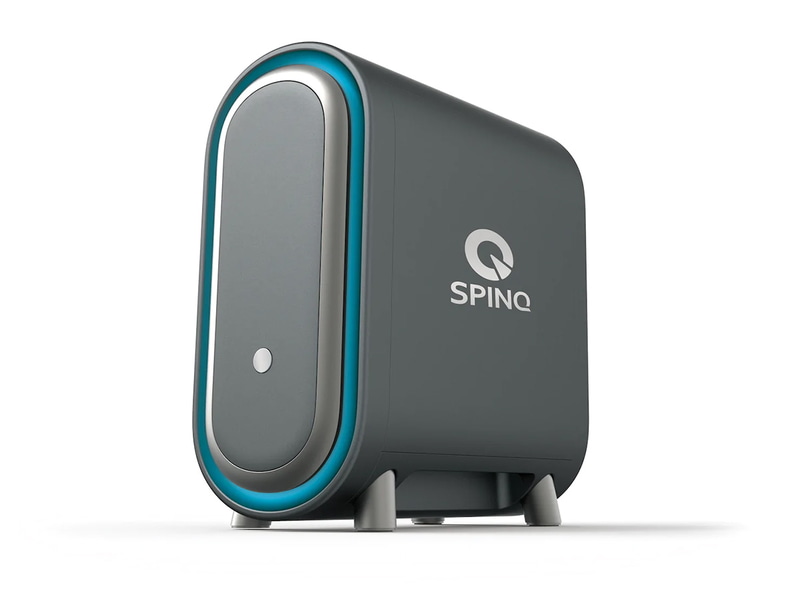Chinese SpinQ ships "undisclosed" superconducting Quantum Processing Units (QPUs) to the Middle East market, units are fully domestically manufactured
Claiming to be the first Chinese company to deliver quantum computing technology to China's external market.

Get Tom's Hardware's best news and in-depth reviews, straight to your inbox.
You are now subscribed
Your newsletter sign-up was successful
This week, Shenzhen, China-based company SpinQ claimed the shipment of the first China-made Quantum Processing Unit (QPU), Shaowei, based on superconducting qubit technology. The claim that SpinQ is now the first Chinese quantum-focused company to sell its technologies beyond mainland China - whilst leveraging a superconducting qubit design setup at that - seems to point to a newfound source of quantum processing chips for any global players that wouldn't be easily provided for by the western market. According to SpinQ, the recipient of its Shaowei chips (and the first international customer of the company's product) is located somewhere in the Middle East.
Qubits are the quantum computing equivalent of a classical bit; while bits are deterministic and can only ever represent either a 0 or a 1, qubits are probabilistic, and consider the entire solution space between both. Recent advantages have brought quantum computing up to a point where the best products actually have enough quantum volume (a measure of a quantum computer's overall performance) to provide useful calculations that are beyond what could be possible with classical computers or even supercomputers.
Established in 2018, SpinQ recently drew our attention to its quantum processing offerings by providing "quantop" solutions: these are relatively simple, one-to-three-qubits, desktop-based quantum processing systems meant for the research and education markets. Far and away from providing any significant quantum computing capability, the "quantops" delivered by SpinQ used nuclear magnetic resonance qubits. But the new Shaowei QPU, being based on superconducting qubit technology that's theoretically similar to IBM's approach, means that the company is branching out its understanding and capability to deliver useful quantum computers. SpinQ says Shaowei utilizes a stable, all-solid-state system that's especially geared towards taking advantage of and reusing more classical chip manufacturing technology.
Considering how China keeps skirting the impact of the US technological sanctions and has achieved an internal 5 nm chip manufacturing milestone without the aid of US tech, this looks like a winning bet.
According to SpinQ, its new superconducting-qubit Shaowei chips were built completely in-house through the company's factories in the Shenzhen-Hong Kong Innovation and Technology Cooperation Zone. Its approach is much like IBM's (and like that of most quantum tech suppliers) in that the company aims to provide a "full-stack" approach to quantum computing by delivering every required element of the ecosystem: quantum processing units, low-temperature electronics, temperature and qubit measurement and control systems, as well as software and algorithm development applications.
Unfortunately, there's little information available on what exactly makes a Shaowei chip, well, tick. Qubit number and connection density are useful metrics, but SpinQ provides none. However, the company claims the coherence time for the qubits inside Shaowei is in the order of 10-100 microseconds (where a higher window of qubit coherence means the qubits are processing information without any catastrophic data loss). But in quantum computing (and every computational effort), results have to be trusted: SpinQ mentioned that Shaowei can perform both single and double-bit gate operations (in the nanosecond scale) and can achieve more than 99.9% single-bit gate fidelity and more than 98% double-bit gate fidelity. While that may sound like a lot, it really isn't: when your CPU can process millions of calculations per second, that 0.01% error rate can add up quickly, and impact the validity (and truthfulness) of the computed results.
It remains to be seen where SpinQ will take its superconducting qubits next, but it's perhaps surprising that China is already selling Quantum Processing Units overseas before 2023 comes to a close.
Get Tom's Hardware's best news and in-depth reviews, straight to your inbox.

Francisco Pires is a freelance news writer for Tom's Hardware with a soft side for quantum computing.
-
WrathfulSpatula I work for (nonprofit quantum computing research and OSS community-building organization) Unitary Fund, and I maintain the open source "Qrack" quantum computing simulator and Metriq.info web app for quantum technology benchmarks.Reply
Some argue, like IBM, that the technology has reached the point of "advantage" over "classical computers"; this claim, over the summer, was immediately challenged by three separate research groups working with tensor network simulations, in a matter of a few short weeks.
However, regardless, the global state-of-the-art in the "quantum volume" benchmark, specifically, does NOT in itself suggest that the most advanced quantum computers are in any way more powerful than common PCs, yet. Log-2 quantum volume (if you put the linked chart on "Log" setting, "Base: 2") is otherwise known as "algorithmic qubits" in the absence of error correction, which is, in other words, the "viable logical qubits" equivalent computational power of the system for the task. Current world record is 19 algorithmic qubits, held by the Quantinuum H1-1; your common laptop or desktop can likely achieve a simulated algorithmic qubits of about 29 to 32, on the quantum volume benchmark. (A 29 qubit ideal simulation is 2^10 times the "capacity," in count of wave function amplitudes, of the Quantinuum H1-1.)
Source: https://metriq.info/Task/34 -
Darkoverlordofdata Can I use it to quantum leap? If not then I'll have to find some other way to get back.Reply -
Steve Nord_ Runs Quake in quantum spinors, runs Crysis is quantum spinors; quit complaining about people trying to get good in quantum spinors (before they get enough qubits etc. to break ahead without even trying.)Reply